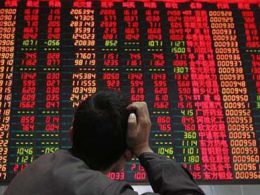The plan to nationalise Anglo or, as many see it, the bailing out of corrupt bankers and developers, is provoking a lot of disgust. The trade unions should organise a day of protest and demand that those under threat of unemployment and public services are ‘bailed out’ instead. They should demand that companies sacking workers or closing down, like Waterford Crystal or Dell, be nationalised. They should stand resolutely against any cuts in public services and counter-pose that instead of vicious cuts, services could be expanded, if the billions were used for people’s needs and not to bail out the banks. If the unions took such a stance, they could get a very receptive response.
However, their lack of action against the government’s policies speaks volumes. It is a disgrace that, while all this is going on, they are prepared to sit down with the government and bosses to discuss cuts in pay and in public services.The events around Anglo, and the crisis that will hit the other banks, will increase anger in society and serve to undermine the position of the government and the leaders of the trade unions further.Since the start of the year, the crisis is hitting people in a much more immediate way. Unemployment is soaring, particularly in the retail sector, where bosses are shedding jobs in huge numbers, after the Christmas sales.
The labour force in Ireland is approximately two million strong. Official estimates now predict that another 240,000 unemployed people will be added to the 290,000 currently on the live register before the end of 2010. That is, they are predicting that more than 500,000, out of two million, will be jobless!The shifting of production/assembly by Dell to Poland, so that the company can benefit from €3 an hour wages, will have a devastating effect on the whole Irish mid-West region. The loss of the 1,900 jobs at Dell is expected to cause the laying off of up to 10,000 to 15,000 other workers in related companies and in retail. As a result of Dell’s greed, Limerick city and the surrounding region will face depression-like conditions within months.
The recently announced sacking of nearly 300 workers at Dublin Bus represents a crisis for those workers, but will also have a terrible effect on people and communities, whose bus services will be axed.
Social crisis
The economic crisis is now impacting in a real and dramatic way and becoming a social crisis. Most people are shocked and fearful of what the future holds. When no lead is being given by the trade unions, it is difficult for workers to organise to fight against the job losses and wage cuts. It is likely that many workers, while very angry, will hold back and hope against hope that the situation improves.
With the threat of unemployment looming very large, some workers may even accept wage cuts, in the vain hope that as a result, their jobs will become more secure. However, these conditions of crisis and unprecedented attacks on jobs, pay and services will inevitably provoke huge active opposition from the working class.
Although the government has been grappling with serious crises in the last months, they have not been undermined by instability on a daily basis. However, since the start of the year, the pressure and instability is intensifying. Up to now, the government have stuck to the approach and policies that helped create the crisis in the first place. Those policies are failing and, in fact, making the situation worse. The government doesn’t know what to do and, in reality, Irish capitalism is experiencing a crisis of leadership.
For months, the government said that the banks were fundamentally sound. If they really believed that, then clearly, they are completely at sea and rudderless. If they did not believe that, but have simply failed to act, then they are a government in paralysis. Either way, they are being exposed and undermined, and opposition to them is likely to deepen quite dramatically. Events in the economy can fundamentally undermine the government even in the weeks ahead. A bad result in the local and European Elections, in June, could be the beginning of the end for this government.
The undermining of the government will undoubtedly mean that pressure can grow for a general election in Ireland. However, the idea is increasingly being pushed, mainly by the capitalists, that the political parties need to come together and co-operate, in some way, to bring political stability. In the circumstances of severe economic and political crisis, it cannot be ruled out that a new consensus might emerge amongst some of the parties, and the composition of the government could change accordingly, even without a general election.
The situation is crying out for a fighting lead from the trade union movement. While there is fear, there is also huge disgust and anger, that working people are being made pay for this crisis in such a brutal way. The government talks of solidarity yet it is increasingly clear that there is no equality in terms of who is bearing the brunt of the crisis. The fact that free market capitalism is increasingly outdated and there is a growing need for socialist policies is actually shown, in a distorted way, by the nationalisation of Anglo.
Socialist nationalisation
The Socialist Party’s calling for the defence of the jobs at Dell and for the nationalisation of the plant, equipment and assets received a positive response. However, the dominant mood was that Dell and the jobs were gone and while many people agreed its assets should be taken over and used by the state to provide jobs, most people felt that this was unlikely to happen. Then within days, the government actually nationalised a bank, which has a workforce of 1,200, at the cost of billions of taxpayers’ euros.
The nationalisation of Anglo represents a very important turning point in the political situation in Ireland. For many, the question is now not whether there should or could be nationalisations, but increasing is what type of nationalisation there should be. It is essential that workers get organised and take action, including occupation, where companies sack workers or are threatening closure. Workers should demand the nationalisation of such companies and their assets, under the democratic control of workers and the wider community.
In Limerick (the mid-Western city where Dell recently announced 1,900 redundancies), the Socialist Party raised the need to end the reliance on the private sector to provide jobs, and called for, “The nationalisation of Dell [as] the start of a plan to develop a viable industrial base, in which working people must have the decisive input and control, to ensure the economy is geared to the interests of the majority, rather than the profits of the few.” It is around such demands, which offer a viable socialist alternative to capitalism, that the developing struggles of workers and youth must be organised, if working people are to escape the ravages of capitalist crisis.









